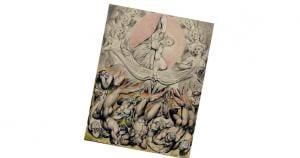 God give me better questions so I can love You better.
God give me better questions so I can love You better.
The way forward is always to ask questions, take tentative answers, never lose contact with the “not knowing” that is part of loving the Beloved Unknown. The tentative nature of any of our answers is part of faithful living, orthodoxy as a window to deeper questions about what still is unknown even with our deeply held, if still provisional, answers.
Socrates lived a life seeking the Divine by questioning false certainties, interrogating his own assumptions, and moving toward his supreme love: the Good, that which is known to be, but is unknown in fullness.
Milton seemingly asks great questions in his masterpiece Paradise Lost. His Satan has been viewed, sometimes by me, as overly effective in making his case: a character who got away from the author. This is a mistake, because on a more careful reading,* Satan is a leader who sits on a throne and is open to suggestions about who should lead, asks for opinions, but has already made up his mind. No defeat educates, no ugliness is avoided, because, regardless, Satan is at war with any reality that limits his will. Nobody is harmed more than Satan by his selfishness and lack of love, except for anyone and everyone who is nearby when he executes his self-centered plans.
Milton wrote Paradise Regained where the God-man reflects his best impulses, made greater. In Paradise Lost, Satan and Adam ask their best questions. The questions motivate and move the action of the dialogue. Why?
They are ill formed questions from Satan, twisted, manipulated to achieve an end and not to find truth. When Satan asks Eve “Has God said . . .”this is a false question, not at all dialectical. Satan knows what God has said and is working to deceive Eve. In Milton’s account (as opposed to the Biblical one), the Devil approaches Eve alone, because he thinks her weaker and so can get to Adam through her intellectual weakness.
This is not a dialectical question, not a question at all. The false question from the Satanic interrogator, wishes to steal confidence in what we know, not to expose false certainty, but to create false doubt. False doubt is a particular disease of clever people. Taught to beware false certainty, the quick witted learn that they sound deep, profound, wise when they are unsure even when they are not. There is a good certainty, honest inability to doubt what seems true (at least for now), and bad certainty, the unexamined idea.
The Satanic question is defensive and justifies self. Milton presents Satan with a continuous series of questions that all are designed to justify Satan to himself and to his followers. The Socratic question is mutual: between two people (or more!) seeking the good, truth, and beauty, if goodness, truth, and beauty are to be found. The Satanic question comes when even a Christian apologist asks a question merely to ensnare his foe. He does not care about truth, but winning.
Lord have mercy on me a sinner.
The Satanic question is ugly, cynical: always leading to a world worse than we could justly see. Eve lives in Eden, an earthly paradise, but Satan paints an unreal “better world” if she simply gives up her human nature. Socrates always questions of the vile, exploitative educational system of Athens, at great personal risk, to help the exploited students. Socrates is with the students in his quest and takes all the risk, even to death. Satan uses his tools to try to justify his endless failure.
Socrates is a figure of Jesus Christ. Satan is figure of every false teacher, word-twisting apologist, Internet atheist, who argues to persuade and not find truth.
John Milton has given us a master course in false questions that deliver us from that evil. Laid side by side, Republic or the Gospel of Saint John, we see the contrast between Satan and Socrates, sin and death at war with the Savior and the examined life.
————————————————
*On my part!












